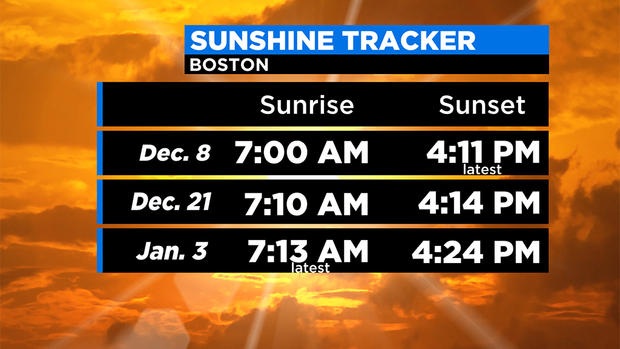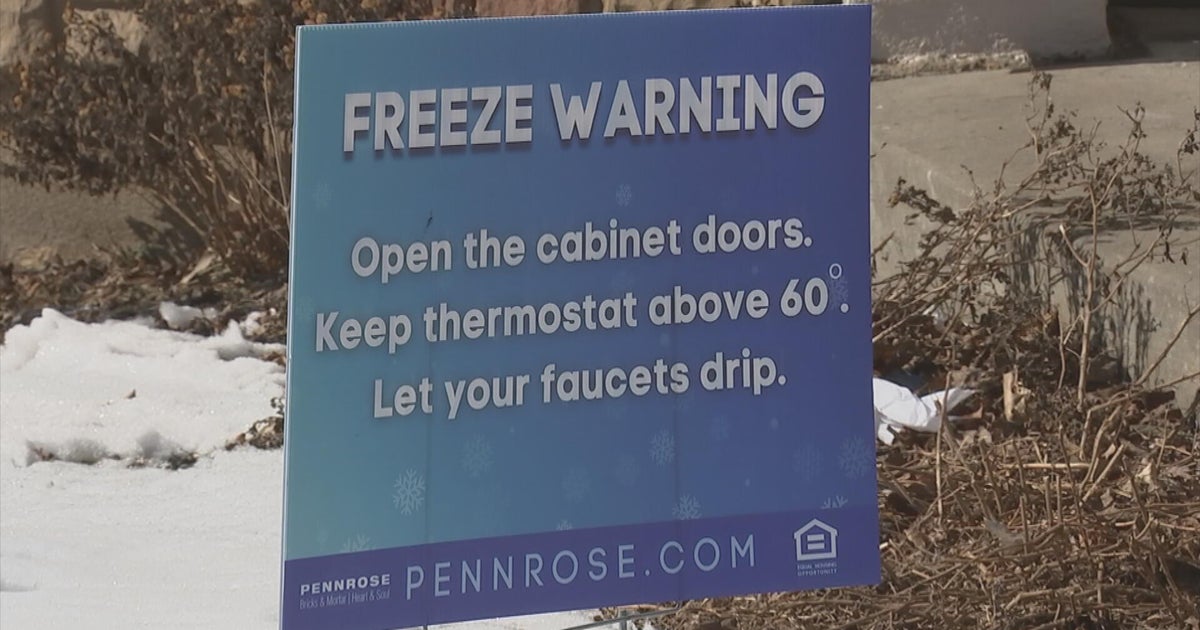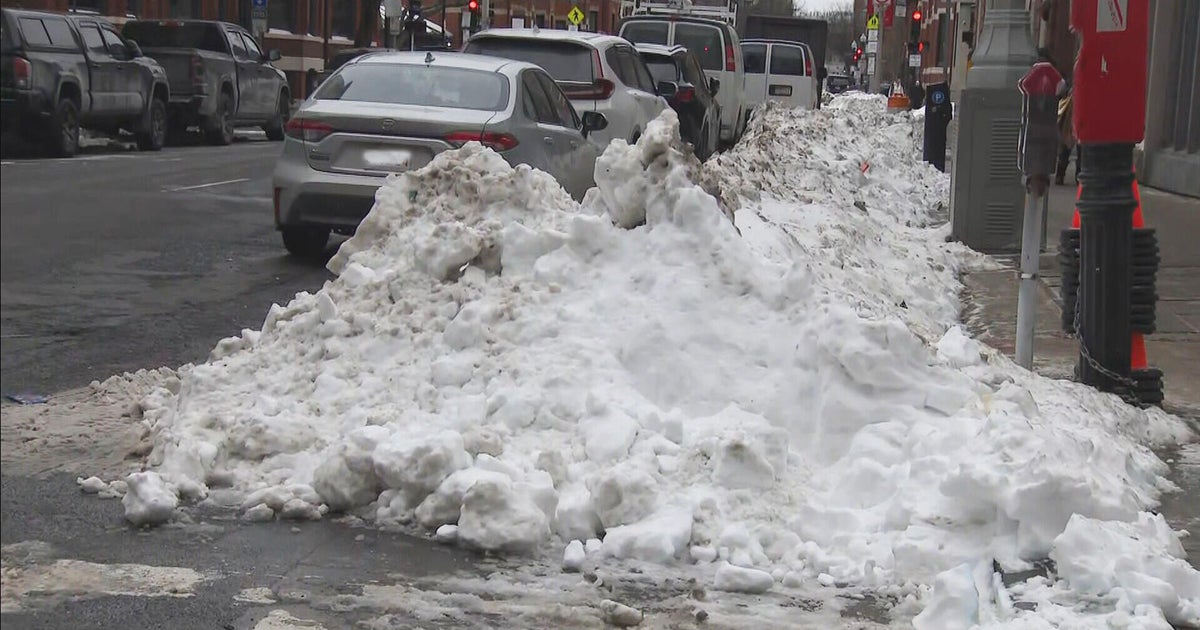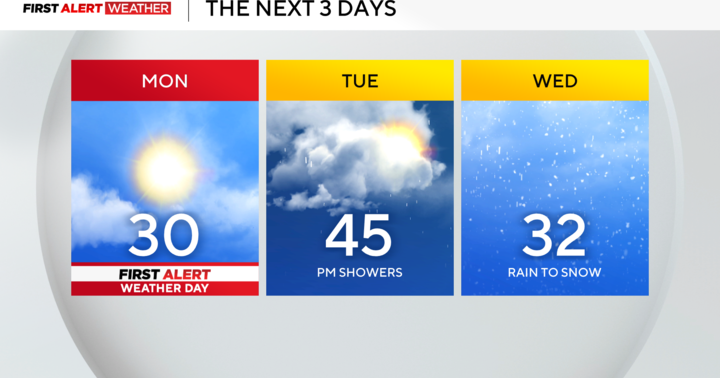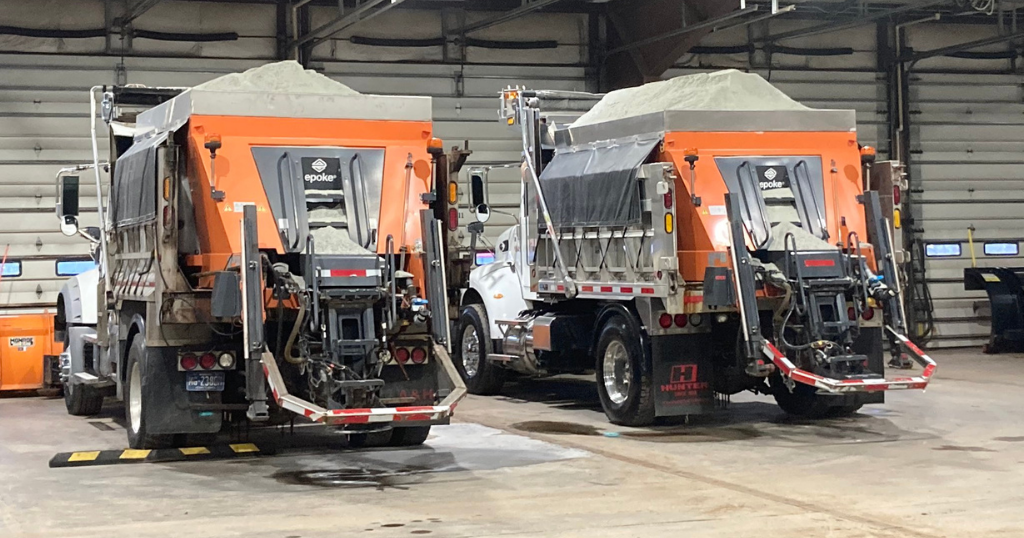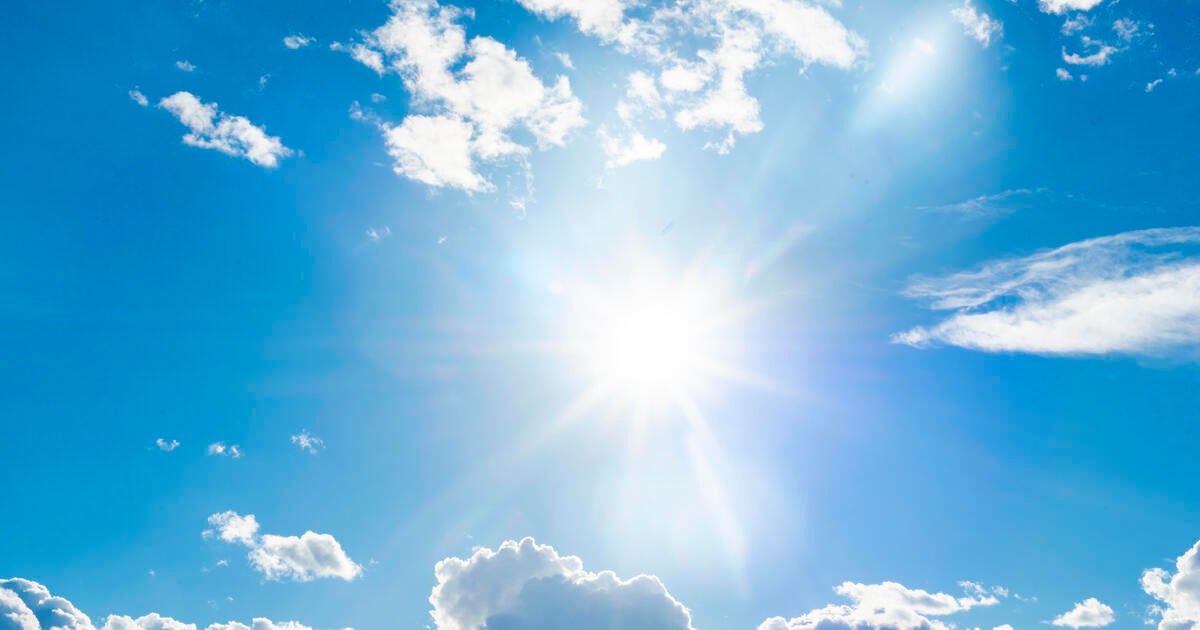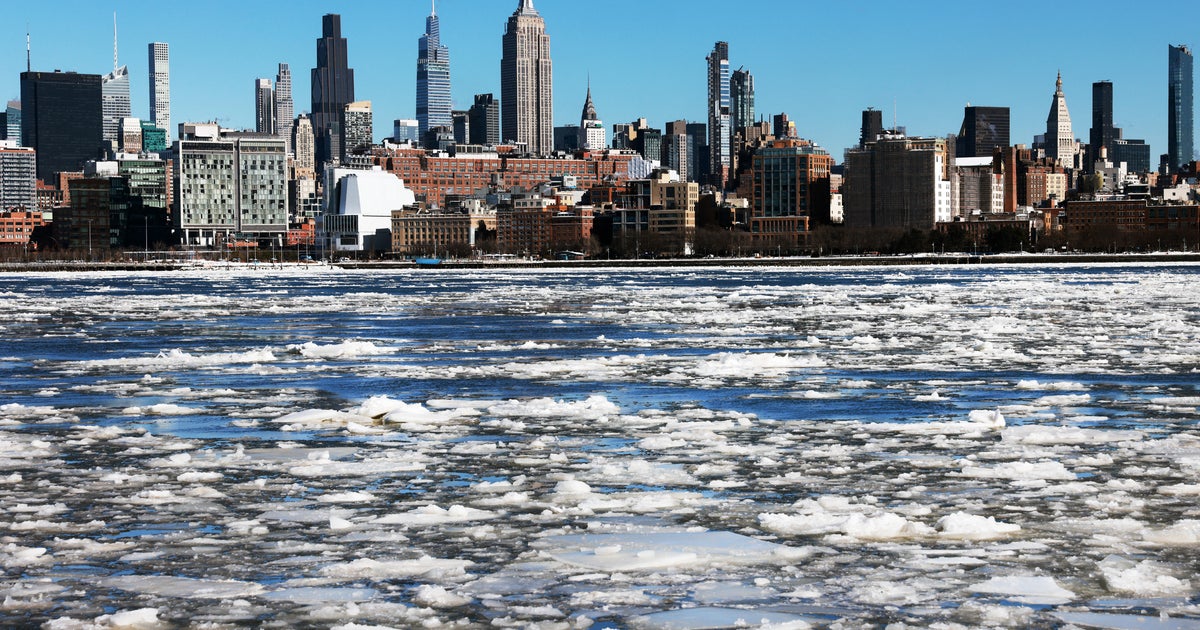Sunshine Tracker: Sunsets Will Start Getting Later After Wednesday
BOSTON (CBS) - Winter has just begun. Actually, by the astronomical calendar, it hasn't technically even started yet. If you are one of those who dread the cold, dark winter season, let me deliver some positive news!
Wednesday, December 8th is the earliest sunset of the year. This means, that as of Thursday, our sunsets will start getting later and later!
Tue Dec 7 Sunset 4:13pm (and 14 seconds)
Wed, Dec 8 Sunset 4:13pm (and 12 seconds)
Thu, Dec 9 Sunset 4:13pm (and 13 seconds)!
Yes! We gain a second on the sunset in Boston on Thursday! And then another 3 seconds Friday…and another 5 seconds Saturday…and on and on so that by the end of the month, our sunset is at 4:23pm (and 9 seconds), nearly 10 whole minutes later than tomorrow.
Small victories.
Some of you are likely reading this and scratching your heads thinking, "I thought the shortest day was on the Winter Solstice, which isn't until December 21st?" You would be correct! The earliest sunsets don't line up with the shortest day. Our sunrises will continue to get later each morning, outpacing the change in sunsets until…you guessed it, the Winter Solstice. As of Dec 21, we gain more daylight at the end of the day than we lose at the beginning…make sense? Check it out…
Mon, Dec 20 Sunrise 7:08:05 Sunset 4:15:57 Total daylight: 9:07:52
Tue, Dec 21 Sunrise 7:08:36 Sunset 4:16:26 Total daylight 9:07:50 (lose 2 seconds)
Wed, Dec 22 Sunrise 7:09:04 Sunset 4:16:57 Total daylight 9:07:53 (gain 3 seconds)
After Dec 21 we start gaining daylight exponentially…just a few seconds on day 1 becomes nearly a minute a day by the end of the month!
By the way, in case you're wondering, the latest sunrise occurs on January 3rd.
Why is this so complicated? Why don't the earliest sunsets and latest sunrises occur together on the Winter Solstice?
Ready to go down the rabbit hole?
This has to do with the equation of time and your latitude on the Earth. While our clocks assume that each day is exactly 24 hours, believe it or not this is not the case! In actuality, a true day is actually the length from one solar noon (the time when the sun is highest in the sky) to the next. This "solar day" varies in length throughout the year due to the Earth's elliptical orbit and tilt. The solar day gets slightly longer closer to the summer and winter solstices, thus causing the earliest sunsets and latest sunrises NOT to occur on the solstice itself.
But that's not all!
If you have lived in different latitudes throughout your life, perhaps you have noticed a slight difference in the dates of the earliest sunsets and latest sunrises? Go far enough south, (closer to the Equator) and you will get your earliest sunsets in November. The closer to the Poles you are, the closer the earliest sunsets are to the Solstice.
I have to admit, even as a meteorologist who has been talking about this stuff for 20 some-odd years, my head still spins every time I discuss the topic. I find it easier just to print out a sunrise/sunset table for my city, post it on the wall, and not think too hard about it.
Bottom line, we start taking back our evenings THIS WEEK! The drive home is about to get a bit brighter day by day.
